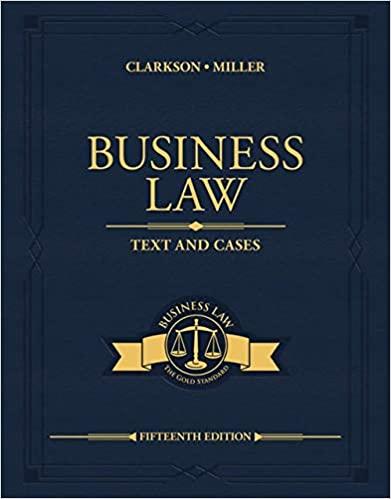Question
Have you ever bought something, paid for it, and arranged to have it delivered to you at a later date? That is a fairly typical
Have you ever bought something, paid for it, and arranged to have it delivered to you at a later date? That is a fairly typical transaction, and, under the Uniform Commercial Code (UCC), a delivery contract is created. However, it is a little complicated to determine when you become the complete owner of the thing purchased.
First, when the contract is made and the purchase price is paid, the title to the item purchased is transferred to you, the purchaser. The UCC says that title is ownership, so you become the owner when the contract is signed and the purchase price is paid. However, only when the item purchased is actually delivered to you does the risk of loss pass to you.
Why is that two-step process (i.e., [1] title is transferred to you when the purchase price is paid, and [2] then risk of loss is transferred to you when the good is delivered to the purchaser) necessary or helpful?
Step by Step Solution
There are 3 Steps involved in it
Step: 1

Get Instant Access to Expert-Tailored Solutions
See step-by-step solutions with expert insights and AI powered tools for academic success
Step: 2

Step: 3

Ace Your Homework with AI
Get the answers you need in no time with our AI-driven, step-by-step assistance
Get Started


